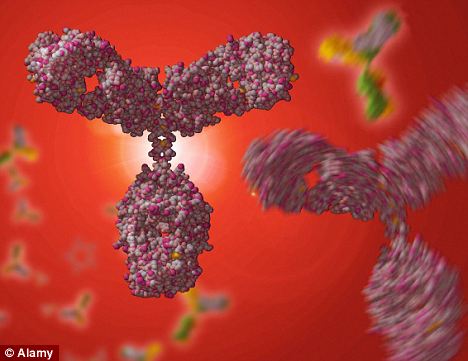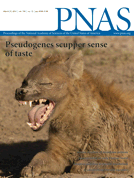导读:研究人员发现,一种单一药物能够缩小或治愈移植到小鼠体内的人类乳腺癌、卵巢癌、结肠癌、膀胱癌、脑癌、肝癌以及前列腺癌肿瘤。该治疗通过让一种抗体抑制肿瘤细胞通常所释放的“别吃我”信号,从而诱使免疫系统摧毁这些癌细胞。

10年前,美国加利福尼亚州帕洛阿尔托市斯坦福大学医学院的生物学家Irving Weissman发现,与健康细胞相比,白血病细胞能够产生更高水平的名为CD47的一种蛋白质。Weissman与其他科学家注意到,CD47还存在于健康血细胞中;它是一个标记,能够阻碍免疫系统在健康血细胞循环时杀死它们。癌细胞也利用这个标记来欺骗免疫系统放过它们。过去几年中,Weissman的实验室发现,通过刺激免疫系统把癌细胞当做是一些入侵者,利用一种抗体抑制CD47能够在某些情况下治愈小鼠体内的淋巴瘤和白血病。如今,他和同事指出,除了血癌,抑制CD47的抗体可能有更为广泛的疗效。
Weissman说:“我们已经证明,CD47并非仅仅对淋巴瘤和白血病很重要。它对我们测试的每一种人类原发肿瘤都有用。”此外,Weissman的实验室还发现,与健康细胞相比,癌细胞通常具有更高的CD47水平。一个肿瘤制造了多少CD47可以用来预测一位患者的存活几率。
为了确定抑制CD47是否有效,科学家将肿瘤细胞暴露在培养皿中的巨噬细胞(一种免疫细胞)和抗CD47分子中。在没有药物的情况下,巨噬细胞忽略了癌细胞的存在。但是当抗CD47分子出现时,巨噬细胞吞噬并摧毁了所有肿瘤的癌细胞。
接下来,研究小组将人类肿瘤移植到小鼠的脚上——肿瘤在这里很容易被监测。当他们用抗CD47分子治疗这些啮齿动物后,肿瘤收缩并不再向身体的其他部分转移。例如,在移植了人类膀胱癌肿瘤的小鼠中,10只未经治疗小鼠的癌细胞全部转移到淋巴结中;而10只接受抗CD47分子治疗的小鼠只有一只小鼠的一个淋巴结中出现了癌信号。此外,被移植的肿瘤在治疗后通常会变小——转移到小鼠体内的结肠癌收缩到平均不及原大的1/3。而在5只有乳腺癌肿瘤的小鼠中,抗CD47分子消除了癌细胞的所有信号,并且这些啮齿动物在停止治疗后的4个月里都没有患上癌症。
Weissman说:“我们发现,即便肿瘤已经站稳了脚跟,这种抗体依然能够治愈肿瘤,或减缓其生长、防止其转移。”
尽管当小鼠被施用了这种抗体后,巨噬细胞也会攻击表达CD47的血细胞,但研究人员发现,血细胞的减少是很短暂的;动物会增加新的血细胞的生产以替代在治疗中损失的细胞。研究小组在3月26日的美国《国家科学院院刊》网络版上报告了这一研究成果。
剑桥市麻省理工学院(MIT)的癌症研究人员Tyler Jacks指出,尽管新研究充满了希望,但仍需要更多的工作来验证这一结果在人类中是否也奏效。他强调:“一个真正肿瘤的微环境比一个移植肿瘤的微环境复杂得多,并且前者可能具有额外的免疫抑制效果。”
Jacks指出,另一个重要问题在于CD47抗体将如何补充现有疗法。“在哪些方面它们可能共同工作,在哪些方面它们或许是对立的?”例如,如果来自化疗的压力导致正常细胞比平时产生更多的CD47,则此时用抗CD47进行治疗会产生相反的效果。
Weissman的研究小组如今已经收到了加利福尼亚再生医学研究所提供的2000万美元的资助,用来将这些发现从小鼠研究转向人体安全试验。Weissman表示:“我们已经拥有足够的数据,我只能说,我相信这将带来Ⅰ期人体试验。”

The CD47-signal regulatory protein alpha (SIRPa) interaction is a therapeutic target for human solid tumors
Stephen B. Willingham, Jens-Peter Volkmer, Andrew J. Gentles, Debashis Sahoo, Piero Dalerba, Siddhartha S. Mitra, Jian Wang, Humberto Contreras-Trujillo, Robin Martin, Justin D. Cohen, Patricia Lovelace, Ferenc A. Scheeren, Mark P. Chao, Kipp Weiskopf, Chad Tang, Anne Kathrin Volkmer, Tejaswitha J. Naik, Theresa A. Storm, Adriane R. Mosley, Badreddin Edris, Seraina M. Schmid, Chris K. Sun, Mei-Sze Chua, Oihana Murillo, Pradeep Rajendran, Adriel C. Cha, Robert K. Chin, Dongkyoon Kim, Maddalena Adorno, Tal Raveh, Diane Tseng, Siddhartha Jaiswala, Per Øyvind Engere,f, Gary K. Steinbergj, Gordon Lij, Samuel K. Soh, Ravindra Majetia,k, Griffith R. Harshi,l, Matt van de Rijnm, Nelson N. H. Tengn, John B. Sunwoo, Ash A. Alizadeh, Michael F. Clarke, and Irving L. Weissman
CD47, a “don't eat me” signal for phagocytic cells, is expressed on the surface of all human solid tumor cells. Analysis of patient tumor and matched adjacent normal (nontumor) tissue revealed that CD47 is overexpressed on cancer cells. CD47 mRNA expression levels correlated with a decreased probability of survival for multiple types of cancer. CD47 is a ligand for SIRPα, a protein expressed on macrophages and dendritic cells. In vitro, blockade of CD47 signaling using targeted monoclonal antibodies enabled macrophage phagocytosis of tumor cells that were otherwise protected. Administration of anti-CD47 antibodies inhibited tumor growth in orthotopic immunodeficient mouse xenotransplantation models established with patient tumor cells and increased the survival of the mice over time. Anti-CD47 antibody therapy initiated on larger tumors inhibited tumor growth and prevented or treated metastasis, but initiation of the therapy on smaller tumors was potentially curative. The safety and efficacy of targeting CD47 was further tested and validated in immune competent hosts using an orthotopic mouse breast cancer model. These results suggest all human solid tumor cells require CD47 expression to suppress phagocytic innate immune surveillance and elimination. These data, taken together with similar findings with other human neoplasms, show that CD47 is a commonly expressed molecule on all cancers, its function to block phagocytosis is known, and blockade of its function leads to tumor cell phagocytosis and elimination. CD47 is therefore a validated target for cancer therapies.
文献链接:https://www.pnas.org/content/early/2012/03/20/1121623109.abstract








